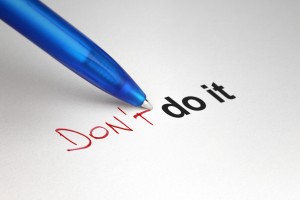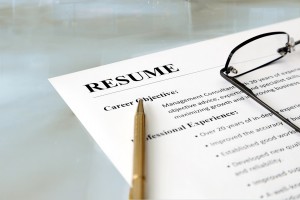What to Put on a Resume
Before you get an interview an employer, you need to perfect your resume. Your resume is the document that will represent who you are as a person and an employee. You need to make sure that it is a good representation of who you are and will help you get an interview. Here are some of the things that you should do and some things that you should not do when writing your resume to ensure that it will be just what your potential employer is looking for when hiring their next employee:
Do
- Include contact information near the top of the page. Some of the things that you should include are your permanent and school address, email address, and phone number.
- Choose to include the most relevant experience only. Review the job description to determine which jobs you should include.
- If you don’t have any jobs that seem relevant to the job, you should show how other jobs that you’ve had have given you the experience that you need for the job. Think about side projects, volunteer work, and coursework that you’ve completed.
- Since many employers use programs to screen applicants, you need to use certain keywords and phrases in your resume to make sure that you get past this stage in order to have a human review your application. Review the job description to consider various words and phrases that you should use in your resume.
- Use data, figures, and statistics to quantify the accomplishments that you’ve made in other positions.
- When explaining your accomplishments and roles in your relevant experience, you need to include powerful verbs.
- Keep your resume to one page and make sure that it’s readable. The job title and company should stand out.
Don’t
- Don’t include any controversial organizations that you’ve been a part of or could cause employers to discriminate against you. Although these shouldn’t determine whether or not you get the job, chances are that they may play a part in the final decision by employers.
- Don’t add any unrelated or off-putting hobbies that you may have.
- Don’t oversell your job experience. You shouldn’t make the job seems like more than it was, because the employer will figure it out and won’t be impressed.
- Don’t include jobs and positions that you held in high school. Try to choose more relevant and more recent experience.
- Don’t include negative phrases about companies that you’ve worked for or positions that you’ve held. Stick to positive phrases throughout your resume.
- Don’t add an objective statement unless you’re making a career change.
- Don’t try to hide gaps in employment. Emphasize what is there, and you can discuss the gaps when you get an interview.
- Don’t use clichés, overly technical jargon, or the same words from the job description. Find ways to stick out from other applicants.
- Don’t include the phrase “references upon request.”
- Don’t use too many fonts. In fact, try to stick to one font throughout.
- Don’t forget to use spellcheck before sending your resume to an employer.
When writing your resume, you need to make sure that it’s as polished as possible. You should review your resume and really think about what to include. Resume.com can help you write a resume that will highlight who you are, so you can get the opportunity to interview with companies for which you want to work.
